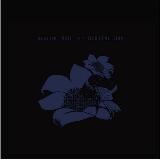Bright Eyes, I'm Wide Awake, It's Morning /
Digital Ash in a Digital Urn
reviewed by brian howe
Not a cruel song, no no, not cruel at all. This song
Is sweet. It is sweet. The heart dies of this sweetness.
- from "Song", by Brigit Pegeen Kelley

There are sound arguments to recommend the proscription of the first-person pronoun in music criticism; to project an air of clinical objectivity is foremost among them. Nevertheless, it's a rule I often violate: When dealing with something as subjective and personal as music, I find it impossible to locate my voice outside of my body.
Vis-à-vis Conor Oberst, the twenty-four year old emo-folk phenomenon known as Bright Eyes, the pull of the forbidden "I" is especially inexorable. Conor's music demands the rampant use of the first-person and the dust-binning of surname formality. It is an exhortation to think solely in the cosmology of You. It is solipsistic, self-absorbed and profoundly personal. It wants to be known, down to the tiniest intricacies of the soul. Moreover, it wants to be absolved. This is an ancient sphinx, this crossbreed of intimate familiarity and ultimate forgiveness. We call it love.
The point bears repeating: While most musicians seem to desire our admiration, Conor craves our love, but only after he's shown us every inch of ugliness and beauty warring inside him. He seems to have emerged from the womb with a guitar in his hand and a new take on an old tune in his head, as if songs were congenital, as universal yet specific as birthmarks. Moody, anxious, petty, nihilistic, maudlin, pollyannaish, precocious - whether he's shaking and sweating alone onstage with nothing but his guitar and his tremulous warble or manning the helm of a twelve-piece ensemble, Conor has been all of these and more since he began to play music under the Bright Eyes moniker in his early teens.
The dark, depressive Fevers and Mirrors marked Conor as a polarizing figure-to-watch in indie music, and its follow-up, the exploded diagram of self-pity Lifted: The Story is in the Soil, Keep Your Ear to the Ground, catapulted him onto the national stage. In a typically ambitious move, Conor has just released two new records simultaneously: I'm Wide Awake, It's Morning, which plays out like a more reserved, sanguine version of Lifted, and Digital Ash in a Digital Urn, which picks up where Lifted's brooding electro-dirge "Lover I Don't Have to Love" left off.
Full disclosure (as is only fitting in a Bright Eyes review): As a rule, I'm no fan of emo-folk. Most of if, as typified by Dashboard Confessional, I find stomach turning, manipulative, even offensive. But I have always loved Bright Eyes, even if, at times, I've felt too sophisticated to openly admit it. So what is it that distinguishes Conor from the emo-folk pack? Most emo generalizes and oversimplifies, creating broadly applicable cookie-cutter angst, but Bright Eyes is specific and convoluted. Like a David Foster Wallace of depression, Conor assiduously charts every involution and ramification of his melancholy with belabored truisms, sprawling metaphors and dramatic monologues. Of course, such ambitions lead to the occasional misstep: There's an unwieldy reference to "Don DeLillo whiskey" on Urn's "Gold Mine Gutted", there's an overly precious piñata metaphor ("If you could just crack the shell open, I think inside you would find something sweet") on the slightly saucy electro ode "Theme From Piñata".
But in music intent on displaying its author's worst tendencies alongside his best, this occasional abrogation of good taste is essential to the Bright Eyes gestalt, where we watch Conor stumble and regain his feet time and time again. Here he continues his investigation of the Big Themes - God, mortality, time, love; all the usual suspects. Most songs on these records will fit into one of these categories, but the best cross-reference them all, as Conor dangles his unknowable theses like charms and marvels as they catch the light from different angles: "If you make friends with Jesus Christ / You'll get right up from that chalk outline", he sings on the springy, staccato "Time Code".
 While I'm Wide Awake, It's Morning tends toward lovelorn laments and detailed character sketches (as befits its gentle acoustic demeanor, shopworn country/folk chord progressions, Emmylou Harris cameos, and reworking of Beethoven's "Ode to Joy"), it's as if Conor can only hold his obsession with mortality at bay for so long, and on Digital Ash in a Digital Urn, death's gray hues begin to billow across the blips, bleeps and clangorous dirges of the music in earnest. To say that his appraisals of these eternal mysteries are sometimes superficial is not to criticize his depth or intelligence - for people of Conor's age (and mine), death and God are still too remote to be more than a blur; we haven't mislaid enough time or love to feel their fullest sting. But we don't look to music to decode the mysteries of the universe; we look to it for individual perspectives, and in terms of sheer wonder and dread, the inchoate ones often pack more potency than the weathered. "How time can move both fast and slow amazes me," Conor sings on the "99 Luftballoons"-evoking "I Believe in Symmetry", and in the context of this and other metaphysical wonders, our own amazement is renewed.
While I'm Wide Awake, It's Morning tends toward lovelorn laments and detailed character sketches (as befits its gentle acoustic demeanor, shopworn country/folk chord progressions, Emmylou Harris cameos, and reworking of Beethoven's "Ode to Joy"), it's as if Conor can only hold his obsession with mortality at bay for so long, and on Digital Ash in a Digital Urn, death's gray hues begin to billow across the blips, bleeps and clangorous dirges of the music in earnest. To say that his appraisals of these eternal mysteries are sometimes superficial is not to criticize his depth or intelligence - for people of Conor's age (and mine), death and God are still too remote to be more than a blur; we haven't mislaid enough time or love to feel their fullest sting. But we don't look to music to decode the mysteries of the universe; we look to it for individual perspectives, and in terms of sheer wonder and dread, the inchoate ones often pack more potency than the weathered. "How time can move both fast and slow amazes me," Conor sings on the "99 Luftballoons"-evoking "I Believe in Symmetry", and in the context of this and other metaphysical wonders, our own amazement is renewed.
If these records evince the mental settling of one's mid-twenties - a tentative calming of beset seas - they retain the ragged frissons Bright Eyes is known for, and Conor's interrogation of the cosmos that revolves around him remains in a state of constant revision. But above all else, his music is an invitation: An invitation to debunk the concept of guilty pleasures, which we label as such because they broadcast things about our personalities we'd rather conceal, even though they're usually closer to our hearts than the sophisticated pleasures we proudly embrace. An invitation to reject the idea that emotion is naiveté and cynicism, intelligence. An invitation to remember that your heart is not a filthy habit, pornography secreted under a mattress. An invitation to indulge both the devil on your left shoulder as he ticks off a list of your failures, and the angel on your right, who countermands these bleak imperatives in a constant, whispered litany: You are specific, you are true, you may be scared, but you are real. Now wake up. At least for now, it's morning.
Copyright © 2005 erasing clouds |
|